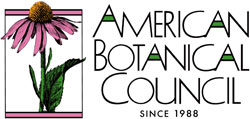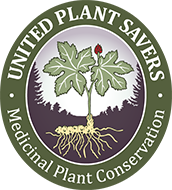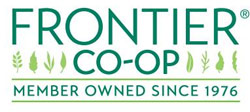Speaker: Paul Bergner, CN Medicinal plants may affect viral infections in humans in three general ways: direct virucidal or inhibitory effects with topical use; enhancement of host resistance for topical or systemic infection; or reduction of inflammatory damage from viral-induced cytokine secretions. We first review evidence for direct virucidal effects of some medicinal plants for topical herpesvirus infections. We then shift to the claims made during the COVID-19 pandemic that specific herbs or their constituents may have specific virucidal effects against the SARS-CoV-2 coronavirus in the human. We review such claims for Glycyrrhiza, Andrographis, and Lomatium. In addition, we review evidence for enhancement of host resistance or reduction of viral-induced inflammation for Allium sativum; Astragalus spp; Echinacea spp; Eleutherococcus senticosus; Eupatorium spp; Ganoderma lucidum; Ligusticum spp; and Melissa Officinalis.
Related product: The PowerPoint for this recording is available here: 2021 Southwest Conference on Botanical Medicine: Conference Book Download (PDF)
Also available in video  (for purchase separately on Vimeo).
(for purchase separately on Vimeo).
Continuing Education:
Naturopathic Physicians: This recording has been approved for 1.5 general CME credits by
- Oregon Board of Naturopathic Medicine (OBNM)
- Arizona SCNM (Southwest College of Naturopathic Medicine)
The Antiviral Materia Medica
- Event: 2021 Southwest Conference on Botanical Medicine
- Product Code: 21SW24
- Availability: 1000
-
$11.99
Related Products
Aging and the Immune System: Using Botanical and Dietary Compounds for Immune Enhancement and Clearance of Senescent Cells to Combat Aging, Infection, and Chronic Disease
Speaker: Donald Yance, CN, RH (AHG) This presentation begins by defining immune senescence and ..
$11.99
Acute Viral Infections: Addressing COVID and Seasonal Epidemic Disease
Speaker: Jason Miller, DACM, LAc Long before the advent of the microscope, doctors in China recorded..
$11.99
COVID-19, Acute and Chronic Considerations in Naturopathic Patient Management
Speaker: Kenneth Proefrock, NMD Experience has shown us that this virus primarily affects the lungs,..
$11.99
Panel: Clinical Approaches to Immune-Centered Illness
Panelists: Mary Bove, ND, Chanchal Cabrera, RH (AHG), and Katie Stage, ND, RH (AHG). Each panelist d..
$11.99
Lymphagogues and Alteratives: Lessons in Herbal Immunology
Speaker: Kenneth Proefrock, ND The goal of this discussion is to bring the physiology of ..
$11.99
Addressing Immune Health through the Ages: Infants to Seniors
Speaker: Mary Bove, ND Let’s talk immune health for all ages and what we can do to suppor..
$11.99
Biofilms and Botanical Medicine
Speaker: Sam Coffman. The discovery of biofilms has opened a new frontier in understanding the ..
$11.99
Abnormal Paps, Cervical Dysplasia and HPV
Speaker Katie Stage. There are many strains of the human papilloma virus (HPV). Low-risk strain..
$11.99
A Review of Natural Compounds Shown to Combat Hepatitis Viruses
Speaker: Jillian Stansbury. The most recent research on the well-established liver remedies Sil..
$11.99
Treatment of Bacterial MDR (MRSA, VRE) with Botanical Therapies
Speaker: David Winston. MRSA and other antibiotic resistant infections have become a major heal..
$11.99
Botanicals, Biofilms and Chronic Infections
Speaker: Paul Bergner. Bacteria responsible for hard-to-treat chronic conditions often exist i..
$11.99
Women's Health: The HPV Update
Speaker: Amanda McQuade Crawford. Do you have a strong opinion about giving twelve-year-old gir..
$11.99
West Nile Virus and Neuroinvasive Complications
Speaker: Paul Bergner. West Nile infections are currently rebounding in the southwest and Calif..
$11.99
Herbal Protocols for HPV
Speaker: Jill Stansbury. The human papilloma virus (HPV) affects around 80% of the general populatio..
$11.99
Botanicals for Chronic Viral Infections
Speaker: Kenneth Proefrock. A description of the intelligence of viruses in adapting to conditi..
$11.99
Influenza: The Globe Trotting Virus
Speaker: Bevin Clare. Learn about the virus itself, its effect in the human body, and the strategies..
$11.99
Botanicals for Colds and Flu
Speaker: Mary Bove. Featured herbs: black elderberry, andrographis, and echinacea have a synerg..
$11.99
Treating Rhinovirus
Speaker: Omar Cruz. Discussion includes an overview of recent research on the common cold, and ..
$11.99
Natural and Herbal Therapeutics for West Nile Virus
Speaker: Paul Bergner. A review of the clinical presentation of West Nile, with natural and herbal t..
$11.99
Chemically Defined Preparations of Echinacea in Prevention and Treatment of the Common Cold
Speaker: David Gangemi. This presentation will focus on the results of an NIH funded human clin..
$11.99
Tags: viral infections, topical, covid-19, SARS








